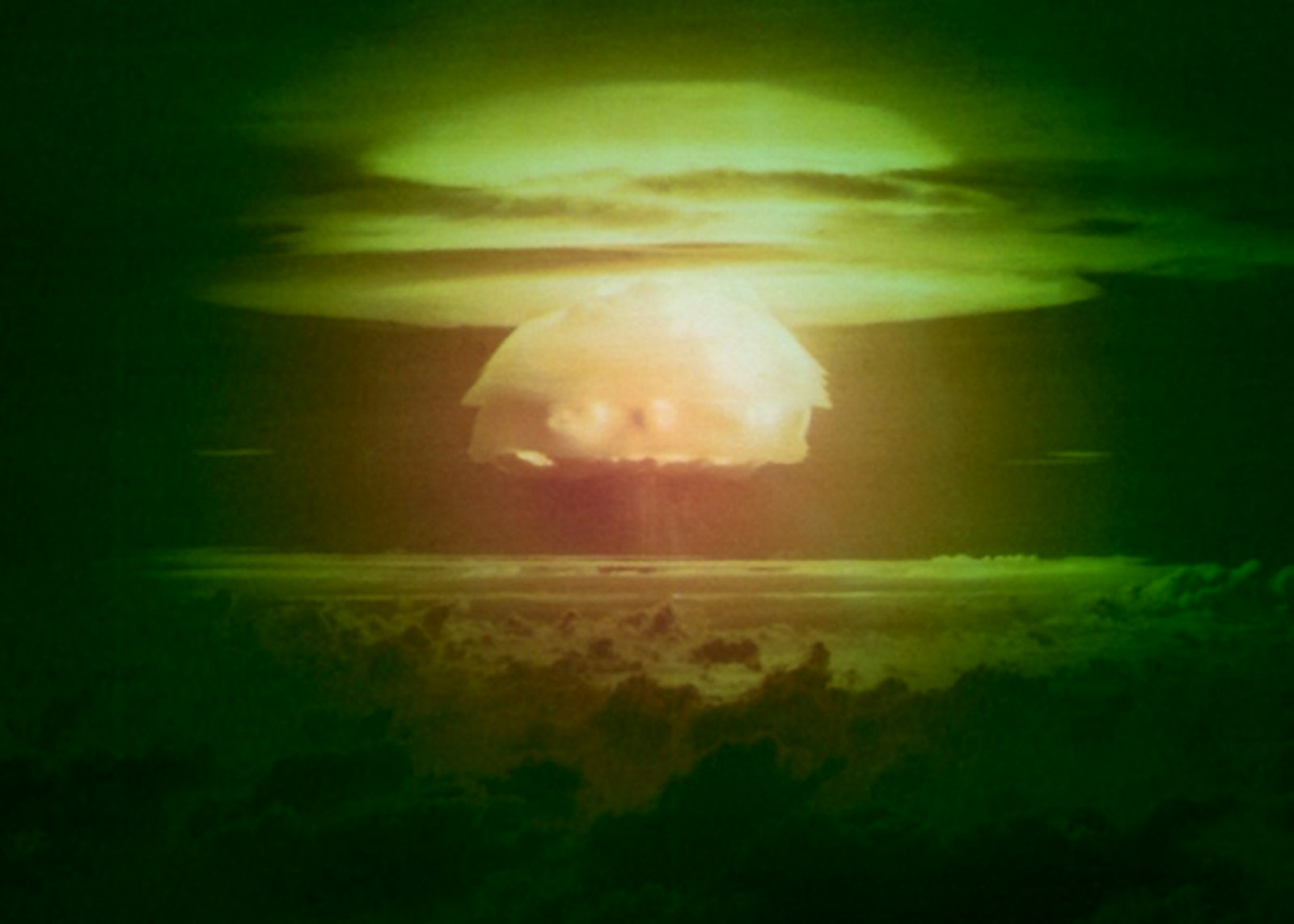The aliens may have found their grave. As we sweep the radio frequencies, we hear only noise; as we slew our telescopes, we see barren pixel after pixel. Is that because our fellow inhabitants of the galaxy have done themselves in, reducing their home planets to cinders? Is the night sky a charnel house hidden under a veil of tranquility?
Last year Jack O’Malley-James, an astrobiologist at Cornell University, and his colleagues Adam Stevens and Duncan Forgan published their analysis of this macabre possibility. Just as astrobiologists have started to look for possible biosignatures—evidence of life, such as water or oxygen in planetary atmospheres—they might also look for necrosignatures, the remains of annihilated civilizations. And if we ever do find them, it would not augur well for our own prospects, because what makes us think we could avoid the fate that befalls all other intelligent beings in the galaxy?
In terms of visibility, the best way for aliens to kill themselves would be a gray-goo apocalypse.
Ironically, the most dramatic scenario—nuclear annihilation—would be the least conspicuous. Nuclear explosions produce gamma radiation, which could be detected with the same instruments used to observe cosmic gamma-ray bursts. “The strongest signature that would come from that would be a very short-lasting radiation burst as the weapons are detonated,” O’Malley-James says. But even that would be almost impossible for us to see. If aliens around nearby stars exploded the equivalent of the superpowers’ entire arsenal, all at once, the gamma pulse would fall short of what our gamma-ray burst detectors could register by a factor of a billion. We might have more luck with detecting radioactive fallout, which would ionize the air and give it a blue or green tint. But even this signature lasts only a few years. “You really would have to be looking at the right place at the right time to see that happen, so you’d have to be very lucky,” O’Malley-James says.
Global biological warfare would create a longer-lasting signal. If a deadly pandemic left a planet covered in rotting bodies, anaerobic microbes would fill the air with gases such as methanethiol, which, conveniently, isn’t produced by abiotic sources and is therefore an unambiguous signal of biological scavenging. The miasma produced by seven billion moldering bodies would be detectable for up to a year. If the pandemic crossed species barriers and destroyed not just the civilization but also all other higher organisms, we could see the effects for 30 years.
In terms of astronomical visibility, the best way for aliens to kill themselves would be a gray-goo apocalypse, in which self-replicating nanobots go out of control and consume all the resources on the planet, replacing the natural surface with nothing but metallic, gleaming, sand-like versions of themselves. Such a catastrophe would result in an observable increase in surface brightness for over a millennium.
The final scenario that O’Malley-James and his colleagues studied is global pollution. Chlorofluorocarbons do not occur naturally and can remain in the atmosphere for hundreds of thousands of years, so they are the ideal signature of a civilization that is either dead or on the way there. If an atmosphere contains these compounds in concentrations 10 times greater than on Earth, says O’Malley-James, the James Webb Space Telescope will be able to detect them.
Paul Davies at Arizona State University is not as confident. “The probability is extremely low that we would catch a civilization ‘in the act’ of self-destruction, and most of the scenarios do not have long-term signatures,” he says. Ian Crawford at Birkbeck College, University of London—who was the referee for the paper—agrees: “If [intelligent civilizations] are very rare, which I personally think they probably are, then the chances of you detecting one that’s either extant or that self-destructed recently, within the last hundreds, thousands, or million years, must be very low,” he says. Yet he adds that he sees value in keeping an eye out: “If we don’t, we’ll never find anything.”
If astronomers fail to detect any other civilizations, whether extant or extinct, they may be forced to conclude that we are alone. Either way, there must be a “Great Filter,” as economist Robin Hanson has put it, that extinguishes life in our galaxy. The question is whether the filter lies in our past or our future.
Extinction is the cosmic default for most life.
Life may be inherently improbable or may tend to get stuck or die at an early stage of development, an argument which would put the filter in our past. Earlier this year, Aditya Chopra and Charles Lineweaver from the Australian National University argued that, once life emerges, it finds itself in a race against time. Conditions on a planet are never stable. For instance, our sun has brightened over geologic time, and temperatures on Earth have remained fairly constant only because of feedback processes that regulate the concentration of greenhouse gases. Life plays a crucial role in these processes. If life doesn’t evolve quickly enough to help maintain the habitability of its home world, it is doomed. “Extinction is the cosmic default for most life that has ever emerged on the surfaces of wet rocky planets in the Universe and rocky planets need to be inhabited to remain habitable,” they write. Earth life was lucky enough to make it through this bottleneck.
But if we ever find necrosignatures, or even just some indication that life is able to gain a foothold on other planets, we will have to conclude that the Great Filter lies ahead of us. “We have no reason to think that we will be any luckier than most other species at our stage of development,” Nick Bostrom of Oxford University wrote in 2008. “If the Great Filter is ahead of us, we must relinquish all hope of ever colonizing the galaxy; and we must fear that our adventure will end soon, or at any rate, prematurely. It would be by far the worst news ever printed on a newspaper cover.”
That would be a cautionary tale for us. Normally we assume that, as bad as things may get, we can always muddle through, because that’s what we’ve always done in the past. But if other civilizations ultimately fail to make it, it should shake our confidence in our ability to cope with the myriad existential risks we face. “If we were actually finding evidence of one of these processes happening on another kind of planet, then it would take these worries that we have about our own future as a civilization and give them a lot more weight,” O’Malley-James says. The discovery of dead intelligent civilizations could be an omen of our own obsolescence.
Joelle Dahm is an editorial intern at Nautilus.
WATCH: The astrophysicist Greg Laughlin describes one of his favorite exoplanets.

This article was originally published in Nautilus Cosmos in December 2016.






























